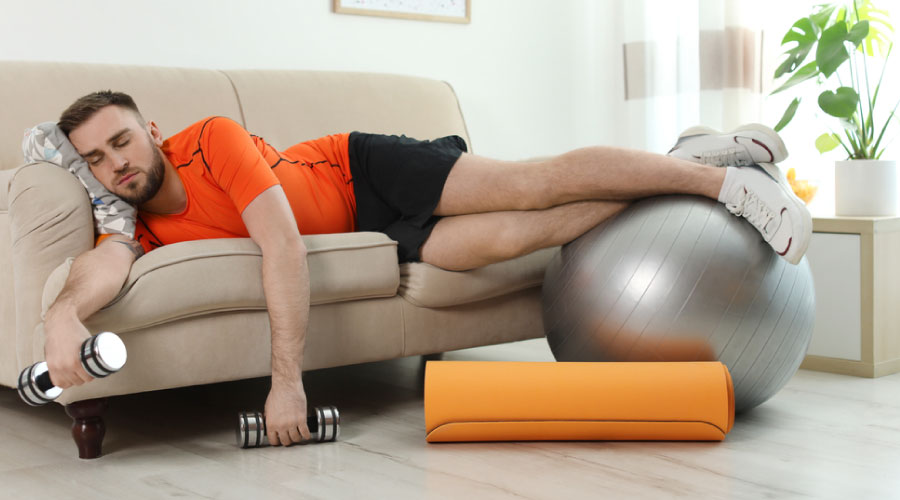10 Helpful Tips You Can Give To Your Beginner Runner Friend
Maybe you still remember the time when you started to get acquainted with the world of running as a beginner. You’ve probably found that running is a really simple sport on the one hand and a very complex one on the other.
If you want to help your close relative, friend, or acquaintance who is just starting to run, you can’t help him with the tips below!

1. Graduality is key!
As a newbie runner, quite a few make the mistake of wanting to grip a lot, but they will catch little. That is, a great deal of enthusiasm (which is super anyway!) This means that they start at too long distances, at too fast a pace, and this can lead to failure in a few weeks, in the form of exhaustion, burnout, and even injury from overload. Enthusiasm in this case unfortunately overrides the principle of gradation, as one wants to get to one’s goal as soon as possible – and that is not the way to go.
Feel free to tell your friend to be patient, as the “less is more” principle may be more effective at first. Generally speaking, as a beginner runner, 3 workouts a week may be enough, and on the other days, the beginner runner should rest or choose a light cross-training (follow each rest day with a rest day). to start with walking workouts!
2. More time than the time
Since, as a beginner, the runner may experience involuntary tempo, it is more beneficial to run your workouts on time rather than long distances at first. The goal is to gain basic endurance, which requires low-intensity runs.
Your friend may feel these workouts are “slow,” but reassure them that the goal now is not to be able to run a certain distance in a given amount of time, but to complete the time specified in your workout plan in that intensity zone. Confirm that if you stick to the “slow” speed that develops basic endurance, you will surely find that in a few weeks you will get further in time, as your running pace for this zone will improve.
3. Walking is not nice!
Moreover, you have to walk in many cases at first. As our expert, triathlon and running coach Anna Szabó writes: “As a complete beginner, one of the most expedient methods can be to alternate between jogging and walking!”
In most beginner workout plans, a number of workouts consist of alternating jogging and walking stages, precisely because of the goal of developing basic endurance already mentioned. Also tell your novice runner friend that even experienced runners sometimes walk when needed, such as on steep inclines or in long-distance races.
4. Warm it up, hand it over!
If you see that your novice treadmill tends to hang over for warm-up and stretching, draw attention to the importance of both to prevent proper regeneration and injury. Not to mention that thanks to regular warm-up and stretching, you will feel much better in your skin, and your muscles will not “go crazy”.
5. You don’t need high-tech running stuff, but a good shoe does!
Teddy bear pants, hoodie, windbreaker – it doesn’t matter what your friend starts running, the point is, he’s started! What you can point out, however, is that there is nothing wrong with the Mackinac in the sky world, but what is worth spending on is running shoes that fit the foot structure. A plain leisure shoe or fitness shoe is not enough to run, and may even lead to foot pain.
It is best to visit a specialty store where sellers recommend footwear after taking the necessary surveys and taking into account the needs of the runner. Sure, as a beginner, you don’t need the miracle shoes of a professional runner for 2-3 races a week (as an amateur, let’s not say later), but it’s worth giving the foot what it deserves because it will thank you.
6. Stay realistic, set goals for yourself!
Closely related to council number one (Gradual is important!) Is the setting of realistic, achievable goals. If you notice that your friend with a zero running history is already dreaming of running a half marathon in two months, try to tell him the risks (injury, failure) of such an irresponsible goal.
Among other things, you can convince yourself that if you leave enough time to prepare yourself, you will not only have a better chance of success, but you will feel much better! The essence of regular sports, in addition to exercise, is to give pleasure. One of the keys to this is to formulate realistic, achievable goals.
7. Plan it!
For someone to make running a part of their life, they need to find their place in their daily lives. If you notice that your friend often pushes your workout times back and forth, often missing out on occasions, draw your attention to the importance of conscious planning as well as consistency as an important factor. Encourage you to schedule your workouts and all related details at least a week in advance. If you feel open to her, show her how you’re doing it and tell her what helped you keep to your schedule.
8. Perform cross-training!
Even the more experienced runners hang out with this sometimes, but you certainly don’t (hopefully) and so encourage your friend not to either! Among other things, swimming, yoga, cycling, and our own weight-bearing, running-specific strengthening exercises (functional strengthening) all contribute to injury prevention – and they also provide variety!
9. Don’t control your ego!
Reassure your friend that it is not a shame to move slowly and gradually, at your own pace, it is not a shame not to belong to the group of runners in gazelle-shaped, high-tech running stuff from head to toe. Tell him it’s not the speed or the suit that makes the runner; tell him it doesn’t matter what others think, it’s just what he does for himself, his health, and his fitness!
10. Just keep going!
It will surely happen that your friend will stop running, lose his enthusiasm, and momentum, or even experience failure. Reassure anyone that this might happen, tell him or her what helped you in these situations Anno, and if necessary, even discuss together what might be the reason for the stoppage. You may need to push it out the door in a figurative sense – or even literally – but be sure to look for the motivating factor, the message that gives you the strength to continue.
10 Helpful Tips You Can Give To Your Beginner Runner Friend Read More »






